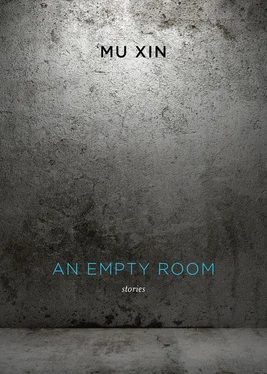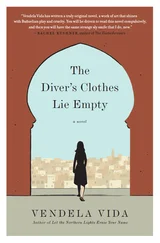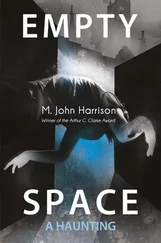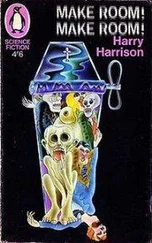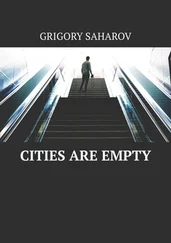Mu Xin - An Empty Room
Здесь есть возможность читать онлайн «Mu Xin - An Empty Room» весь текст электронной книги совершенно бесплатно (целиком полную версию без сокращений). В некоторых случаях можно слушать аудио, скачать через торрент в формате fb2 и присутствует краткое содержание. Год выпуска: 2011, Издательство: New Directions, Жанр: Современная проза, на английском языке. Описание произведения, (предисловие) а так же отзывы посетителей доступны на портале библиотеки ЛибКат.
- Название:An Empty Room
- Автор:
- Издательство:New Directions
- Жанр:
- Год:2011
- ISBN:нет данных
- Рейтинг книги:3 / 5. Голосов: 1
-
Избранное:Добавить в избранное
- Отзывы:
-
Ваша оценка:
- 60
- 1
- 2
- 3
- 4
- 5
An Empty Room: краткое содержание, описание и аннотация
Предлагаем к чтению аннотацию, описание, краткое содержание или предисловие (зависит от того, что написал сам автор книги «An Empty Room»). Если вы не нашли необходимую информацию о книге — напишите в комментариях, мы постараемся отыскать её.
In Our Time
An Empty Room
An Empty Room — читать онлайн бесплатно полную книгу (весь текст) целиком
Ниже представлен текст книги, разбитый по страницам. Система сохранения места последней прочитанной страницы, позволяет с удобством читать онлайн бесплатно книгу «An Empty Room», без необходимости каждый раз заново искать на чём Вы остановились. Поставьте закладку, и сможете в любой момент перейти на страницу, на которой закончили чтение.
Интервал:
Закладка:
“I do.”
“What do they concern?”
“Worldly matters. . family matters.”
Uncle Zhao ended the story with a sigh: “If even Hong Yi who had attained such a high level of wisdom couldn’t disconnect himself from worldly matters toward the end of his life, how could you or I, people who live mediocre lives?”
I wasn’t quite twenty at the time, but the story touched me so deeply that I can distinctly recall it to this day. Uncle Zhao was always cautious about what he said and never gossiped about anyone. He told the story to me only because he was a close friend of my father’s. I suspect he never repeated it to anyone else after sharing it with me that day. I cherish the story as much as I cherish the Buddha’s sarira.
Uncle Zhao possessed sensitive instincts and was courageous in making his inquiry. Master Hong Yi was forthright and sincere in his response. If he had answered “I don’t have any thoughts,” or had tried to hide behind some vague metaphysical discourse, I would have been horrified, for such hypocrisy is vile. That Hong Yi gave a straightforward answer is remarkable and discloses the undying light of his internal world. It is a light more marvelous than any light added for decoration — that dull light resembling a circle or plate. I’m willing to forget my other impressions of Hong Yi, whether good or bad, but I will preserve those few words of truth he uttered not long before his death. Many a tightly shut door opens of its own accord without any wind; any heart that beats and flows with blood.
I didn’t ask Uncle Zhao if he had seen a halo around Hong Yi’s head when he gave his reply. I didn’t ask because I knew that the halo must have been there. It isn’t that Uncle Zhao and I have somewhat different views — we have entirely different views. But better to have this kind of generational gap than to not have it.
The above illustrates the “painful,” painful but bright. There’s another kind of halo, however, that borders on the cruel, that exists in the dim realm of suffering.
One evening, a few friends and I sat in a corner of a bar, talking and drinking.
George, a biophysics student, said, “The human body constantly emits a strange light. One with extraordinary physical capabilities emits a stronger light that sometimes appears as a luminous purplish-blue, particularly visible around the head.”
Song Tian, who was obsessed with UFOs, responded, “Visitors from outer space wear a cosmic attire that includes a helmet which is actually a halo like those depicted in ancient statuary and cave paintings. This is evident in the art of Egypt, Mexico, and Russia. Ancient peoples abstracted the halo from their memories and legends.”
Ouyang, a painter and sculptor, took his turn to speak: “If the head is supported by a circle, the circle can help the viewer focus on the person’s face.” He smiled and then confessed, “Once, a halo appeared around my head.”
Everyone was perplexed except Ouyang who, smiling, kept his silence. Only after a long pause did he begin slowly:
“In the second half of the twentieth century, during a certain decade, certain events akin to religious persecution of heretics occurred in a certain country. I wasn’t exactly a heretic, but certain details of a sculpture of mine were used against me. Before I realized what was happening, I was arrested and locked up. The cell I was put in wasn’t more than twenty square meters — walls on three sides and one side iron bars — but it was crowded with fifty or so prisoners. During the day, we either sat or stood so that there was some room between us, but at night when everyone needed to sleep, you couldn’t lie on your back but had to lie on your side with your legs stretched out so that your stomach touched the back of the person in front of you and your back stuck to the stomach of the one behind you. Summer nights the humidity was unbearable. Everyone sweated profusely. . Well, this isn’t what we were talking about, was it? So, going back to the halo…
“The days were very long; the young, the middle aged, and the old were all mixed together; only those with senior prison-status had the privilege of sitting against the walls, while newcomers stood in the middle of the room. When you have nothing to lean on to rest, your back hurts like hell and the passing of a day feels like a year. According to prison regulations, we were forbidden to reveal our names or to discuss the nature of our arrest. Thus we were also forbidden to ask about other people’s names or arrests. I kept these rules in mind and wasn’t going to divulge any information. Nor was I interested in talking to anyone. After two months, I was lucky enough to earn the privilege of sitting against the wall. The difference to my back was extraordinary. Indeed, sitting there was even enjoyable. I watched the other prisoners whispering to each other, killing time. So when the white-haired elderly man sitting next to me softly inquired for the third time, ‘What are you here for, sir?’ I replied in a low voice, ‘Sculpting got me into trouble.’ The old man was overjoyed at meeting a fellow artist, for he himself was a renowned art critic and painter. He leaned against my shoulders and whispered gently into my ear, ‘Don’t feel disheartened, don’t. .’ I felt that it was my turn to now ask, ‘How do you know I’m disheartened?’ The old man mysteriously said, ‘From your appearance, I know you are exhausted following the path of art and that you are disdainful of immoral actions, so you are thinking of quitting.’ I felt he was quite perceptive, as my thoughts then were to never touch plaster or clay ever again if I got out of there. The old man continued, ‘You see the bunch of dry bones I am. Still, I will keep painting until my bones become ash. Even then my ashes can be used for color pigments. You’re half my age. Why should you be discouraged!’ I replied, ‘Even if I paint and sculpt till I die, is that meaningful?’ ‘True,’ the old man said, ‘but is there anything else more meaningful than what you do?’ That seemed right to the point. I had been an artist for so many years, why should I turn to anything else? Though I hadn’t tried to do much else, those other things seemed more meaningless to me than sculpture. I couldn’t help turning to look at the old man. His hair was silver but his eyes sparkled. He smiled an enigmatic smile and asked, ‘Have you seen an image of Buddha?’ ‘Yes,’ I said. ‘And there is a circle surrounding the head?’ ‘Yes, the light of Buddha,’ I replied. The old man sucked in a breath and said, ‘Do you know where that comes from?’ ‘It’s just there,’ I said. ‘That may not be true. . Look, see the wall across from us?’ I looked but didn’t see. ‘Look at the head positions of those seated against the wall,’ he said. Miraculously, I could suddenly make out a hazy circle behind the head of each prisoner. With so many heads repeatedly rubbing against the chalky surface, sweat had tainted patches of the wall in circular shapes. Since everyone was of a different height, the repeated rubbing produced circles of proportionate size to the heads before them. The circles were exactly like the dignified light of Buddha portrayed in ancient art. Not only that, each new prisoner had to have his head shaved. Our arms were bared as it was the peak of summer, and we sat with legs folded. Our posture, the hazy circles, the shaved heads formed eighteen arhat profiles, no more, no less. I almost burst out laughing — the subtle profundity had to be felt not just spoken. I was lifted up by the old man’s humor, which is indispensable in coping with suffering, though his testimony far exceeded the force of humor.
“The old man was happy that I understood; his spirit was raised. Ever since then, we’ve been best friends despite our difference in age.”
Читать дальшеИнтервал:
Закладка:
Похожие книги на «An Empty Room»
Представляем Вашему вниманию похожие книги на «An Empty Room» списком для выбора. Мы отобрали схожую по названию и смыслу литературу в надежде предоставить читателям больше вариантов отыскать новые, интересные, ещё непрочитанные произведения.
Обсуждение, отзывы о книге «An Empty Room» и просто собственные мнения читателей. Оставьте ваши комментарии, напишите, что Вы думаете о произведении, его смысле или главных героях. Укажите что конкретно понравилось, а что нет, и почему Вы так считаете.
